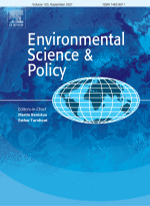
REDD+ and equity outcomes: Two cases from Cameroon
Year of Publication: 2021
Authors: Y. T. Tegegne, C. Palmer, S. Wunderc, N. M. Moustapha, K. Fobissie, Eleonora Morob
Abstract
One reason for recent opposition to REDD+ stems from concerns about possible welfare impacts on forest-dependent, especially indigenous peoples. We assess how two projects with community payments (PES / REDD+) impacted indigenous peoples (Baka) relative to the locally dominant ethnic group (Bantu) in south-eastern Cameroon, trying to understand to which extent the projects addressed equity concerns. We gathered empirical data through a household questionnaire survey, indepth interviews, and focus group discussions in six villages. Overall, we found little support for the hypothesis that indigenous peoples were disadvantaged by the projects, absolutely and relative to the locally dominant ethnic group, along procedural and distributive equity dimensions. Yet, upfront contextual inequities with respect to technical capabilities, power, gender, level of education, and wealth are key to determining an individual’s likelihood of participating in and benefiting from the projects. Our analysis also revealed that more complex and time-consuming free prior informed consent processes could actually come to reinforce power imbalances and inequities. Hence, we call attention to the key role contextual factors play for equity and social safeguards when implementing REDD+ and associated interventions.
